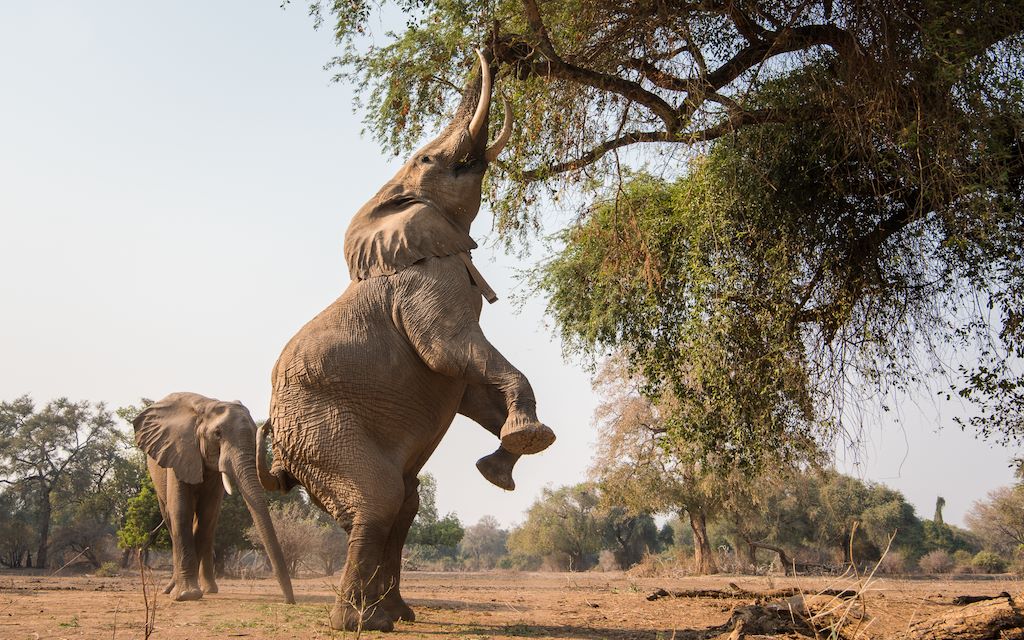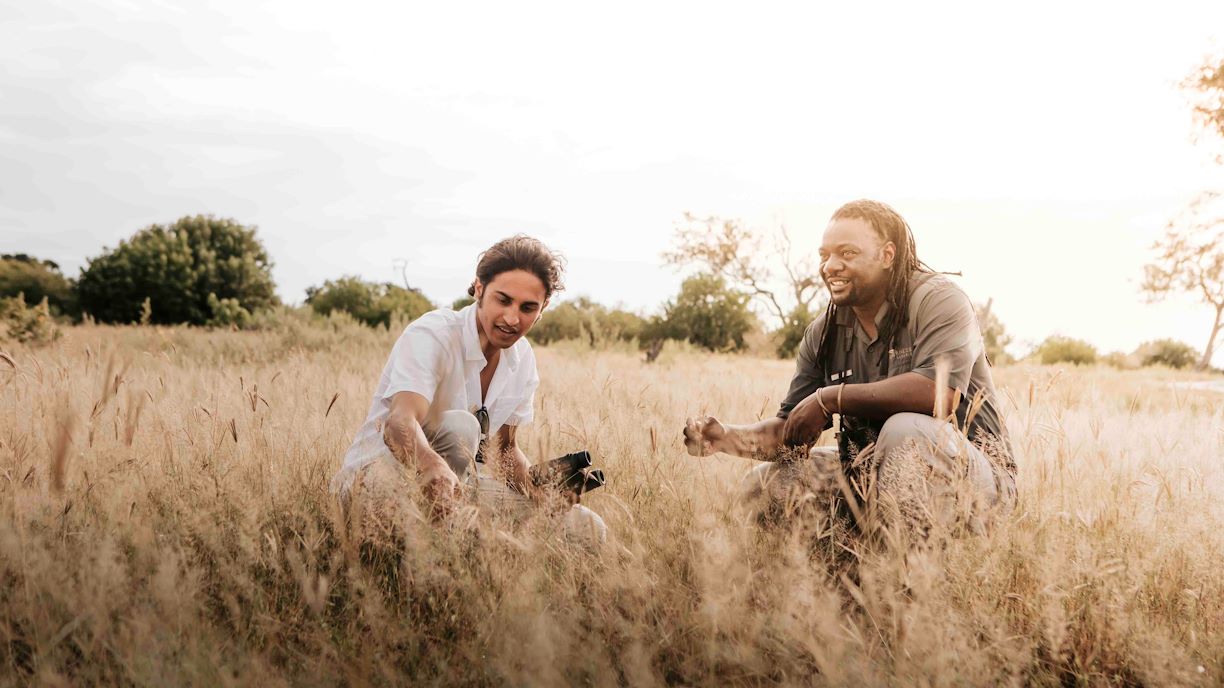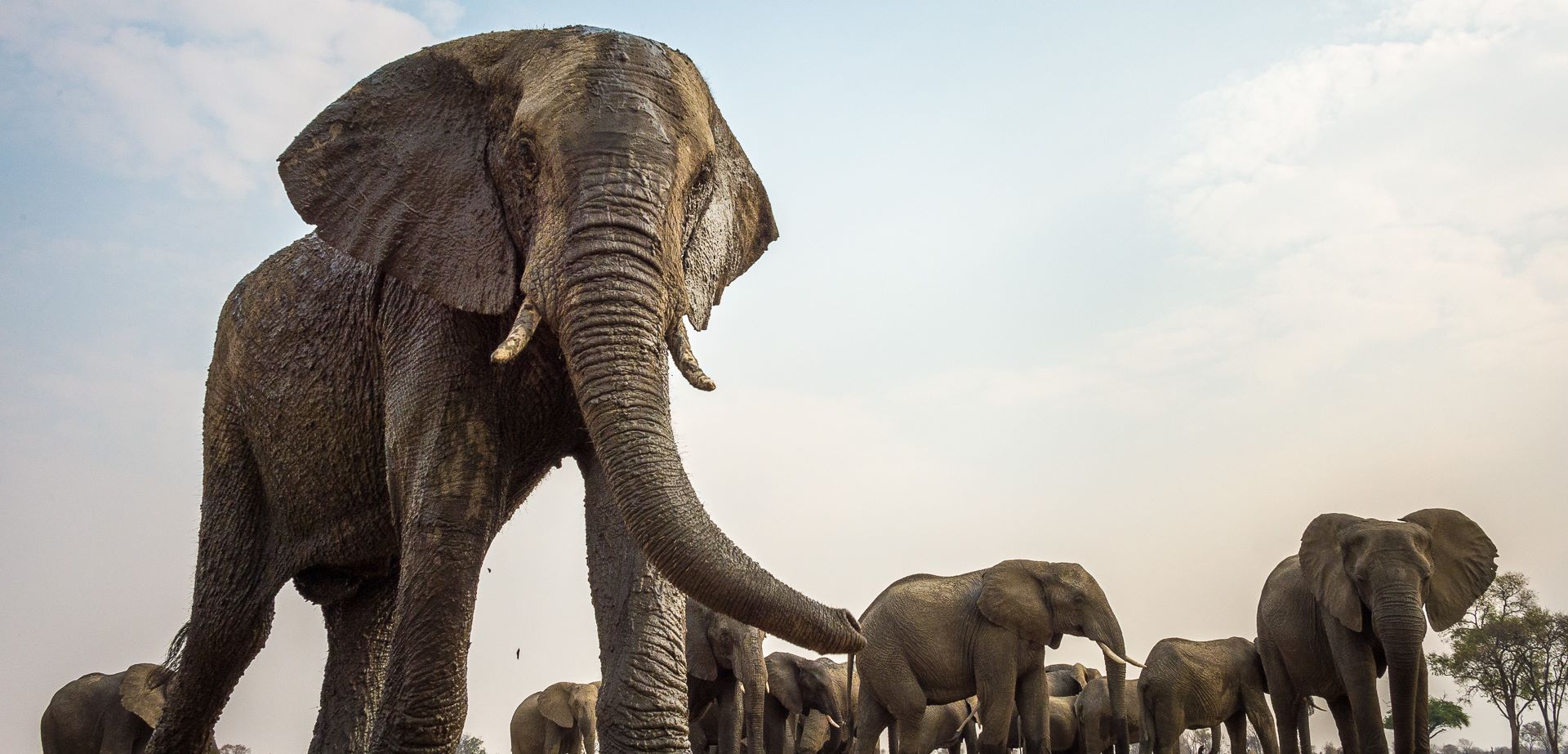

A Wilderness guide
Imagine spending an entire day tracking a pride of lions. Following the pride from morning to afternoon and to witness them wrestling a sub-adult elephant bull. Imagine missing meals for almost the whole day, barely noticing you haven’t eaten since daybreak due to the excitement. Now imagine this your job.
This is just one of the memorable moments Cilas Mafoko, our Head Guide Trainer for Botswana, has experienced during his time working at Wilderness. One of his other top memories includes being given the opportunity to guide the former President of Botswana (Dr Ian Khama), his mother (Ruth Khama) and his family.
What other job in the world can you combine heads of state and heads of the animal kingdom in one day and not be eaten alive? Welcome to the wild world of safari guides.
So what is a safari guide?
In the words of Attorney Vasco, Private Guides Manager for Wilderness Botswana, “Safari guides are the windows to the wilderness”.
“Guides perform the essential task of translating the natural areas in which we operate to guests, in a way that results in lasting memories and a better understanding of our world”, says Alexandra Margull, Wilderness Chief Operations Officer.

They are the know-all, have-all, fix-all, do-anything-and-everything superheroes of the bush. Not only is the safari guide responsible for showing guests creatures both big and small, but they are also key to your safari experience. It is their knowledge of the country, environment and its inhabitants that will shape your time on safari.
Safari guides are expected to have a wide scope of knowledge and skills that goes beyond just geology, geography, fauna, flora, ornithology and astronomy, to history, current affairs, customer care, archaeology and hospitality. They need to be able to pass on animal information in fun and interactive ways, identify plants and discuss their various uses, describe different behavioural and physical adaptations, and perhaps all importantly, know how to set up a great sundowner. At the end of the day, it’s the guide who makes or breaks your safari.
“It is the jokes, insider info and titbits of information passed on by your guide that you will take home with you. Precious memories to be cherished for a lifetime”, says Johan, who looks after all aspects of Wilderness Namibia’s guide training.
What does it take to be a safari guide?
That depends, each country has their own set of criteria to be qualified as a guide. For instance, in Namibia, there are four recognised guiding qualifications, ranging from transfer driver, to local guide, apprentice guide and finally national guide, which involves extended training and tourism experience in a variety of ecosystems and landscapes. These qualifications consist of specific standards, some of which are compulsory while others are optional.

But what about a Wilderness guide?
According to Cilas, who, in addition to his role as guide trainer, is also an accredited assessor and moderator, every Wilderness guide needs to be “Trusted. Willing to learn and improve. Loyal. Knowledgeable. Engaging. Have a good reputation. Passionate. Attentive. And have great client interaction skills”.
But even if you have all the above attributes, not just anyone can be a Wilderness guide. We pride ourselves on recruiting individuals who hail from the areas surrounding our camps and already have a knowledge of the area. For instance, Attorney first encountered Wilderness when he was just 13 years old, when he would visit our camps delivering goods and building materials with his bothers and father. He says, “My love for the bush life started then, the way we were treated in the camps was amazing. I just couldn’t believe that there were these beautiful establishments out of town in the middle of nowhere. I just knew what I wanted to do and by the time I finished high school I applied for a scholarship with the Botswana government to study tourism in South Africa. Straight after varsity I came home and joined Wilderness”. He was quickly promoted from Trainee Manager to General Manager, and beyond to Operations, Sales and finally to Head of Private Guiding, travelling the world to promote Wilderness, and impart his valuable experience to other guides.
Our Wilderness guides are also encouraged to develop their specific interests. Whether that’s spending time with children to create the ultimate family-friendly adventure, teaching guests how to track beetles or identify butterflies, or understanding the intricacies of taking the perfect wildlife photo. In our most recent guide training workshops, we even brought in a local guide from Makgadikgadi who specialises in African night skies to share his African stories and the traditional beliefs of Africans about the stars.
Ongoing guide training
Wilderness also prides itself on having highly qualified guides at all our camps. In Rwanda for instance, we can boast the first FGASA-trained guides in the region. We also own some of the only registered tour guide training providers in Namibia and Botswana, providing essential training to not only our own guides but also those from other lodges.

To ensure that Wilderness continues to recruit and train the industry’s best guides, we focus on a combination of intensive training and regular refresher courses, ongoing mentorship, and opportunities for future growth and development. Most recently in February 2023, 58 Wilderness guides attended a comprehensive course in Botswana’s Linyanti Wildlife Reserve, where interactive sessions encouraged team building and provided a learning opportunity for our guides to share experiences and knowledge with each other, reigniting their passion.
We were also delighted to be able to extend an invite to Sifundo Gumbi, who has 19 years’ experience working as a freelance bird guide for BirdLife South Africa, a valued conservation partner of Wilderness. “I joined the Wilderness training as I wanted to improve my knowledge and skills and see how other guides operate. I have learnt something new, which is the stargazing. This will add on to my skills when I'm out with my guests at night looking for owls and nightjars, and is something I can talk about and share with my guests. I have also seen 23 new bird species. I will cherish this experience for years to come”.
Also included was a First Responder’s refresher course. In addition to essential medical response, this also included airstrip protocols to ensure the safety of our guests during landing and take-off, and a look at how nature can truly be the best medicine, with an examination of the medicinal values of various plants, and grass identification.
Alexandra concludes: “Training plays such a vital role in ensuring our staff are able to create meaningful wilderness journeys – all with the intention of inspiring a love of nature and positive action at the same time”.


Let’s plan your next journey
Ready?
When we say we’re there every step of the way, we mean it, literally. From planning the perfect circuit, to private inter-camp transfers on Wilderness Air, and easing you through Customs. We’re with you on the ground, at your side, 24-7, from start to finish. Ready to take the road less travelled? Contact our Travel Designers to plan an unforgettable journey.